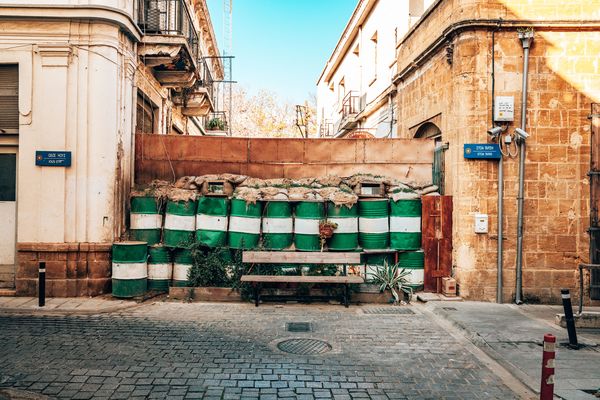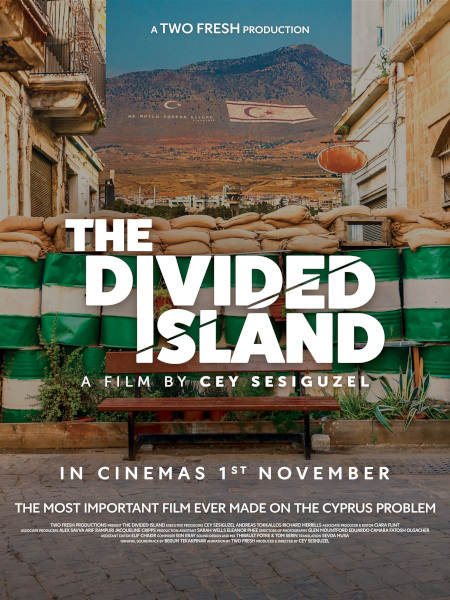Eye For Film >> Movies >> The Divided Island (2024) Film Review
The Divided Island
Reviewed by: Jennie Kermode

In a busy news agenda full of stories about conflicts between nations, it can be difficult to bring other stories to public attention. This is one of the roles of documentary, and it’s particularly well suited to more complex stories which can’t easily be summed up in a five minute segment with room for reaction shots. Cyprus is not an island currently involved in conflict but, 50 years on from its division, many of its inhabitants fear that their fragile peace could shatter at any time. They need investment, locally and internationally, in building a more secure future.
What shape that future should take is, of course, contested, and to understand why, as well as gaining an appreciation of why emotions run so high, one needs to know a bit of history. Cey Sesiguzel’s documentary goes back to pre-modern times to explain the waves of immigration which shaped the island’s population, before narrowing its focus to the 20th Century. Older people talk about their childhoods, about just thinking of themselves as Cypriots, not caring whether the other kids they played with were of Greek or Turkish origin. As the order of events is established, delineating the decline, they try to get a handle on how things changed in their own lives.
What follows is illustrated with fuzzy black and white archive footage and sepia tinted photographs, but the presence of direct testimony means that it never feels overly remote. A wrenching initial contribution from a woman whose son was killed early on, and who still doesn’t know where his body is, sets the tone. A note of caution is sounded, however, with a warning about how easily historical narratives can be manipulated. Sesiguzel sets a standard and works hard to live up to it. The diversity of voices in the film is impressive and enriches the history as well as helping viewers to get a better grasp of the arguments being made today.
If there’s one thing that all the participants have in common, it is – perhaps inevitably, in light of their willingness to get involved with a project like this – a willingness to set aside the pain of the past, and even their present day political preferences, if that can enable a peaceful, democratic solution. Members of Unite Cyprus Now discuss their mission to unite Cypriots at a personal level, just by getting people talking to each other across ethnic lines, but there are also contributors who believe that it’s possible to arrive at a healthier, more amicable two state solution.
There is discussion of UK’s culpability, dividing and conquering as per the standard Empire playbook when the island was under its control, but wariness of this being used as an excuse by islanders trying to justify their own failings, past and present. Complicating the familiar us-versus-them way of looking at the situation, a younger woman stresses that there are many more different communities on the island, whilst an academic notes that in fact, most people on the island are closely connected genetically, with no obvious dividing line between supposedly separately derived communities.
There is reflection on the things that people do, to their neighbours, under cover of war; the score settling and petty vindictiveness. It’s a reminder that wars don’t emerge only from large scale events or from the whims of those in formal positions of power. Attempts at making peace are then complicated by generational trauma, with displacement trauma also a linger issue for families which feel a strong attachment to particular patches of land, sometimes because their dead are buried there. There is a warning about the rise of the far right across Europe, and what that could mean in such a precarious place.
The conflict, one interviewee says, is frozen. It could melt at any time. Sesiguzel’s film is a reminder of what that would mean, and of the work that needs to be done if we don’t want to see Cyprus in the news for the wrong reasons. It’s a very particular story with much wider resonance, and it calls upon us all to find the courage to do things differently.
Reviewed on: 03 Nov 2024
















